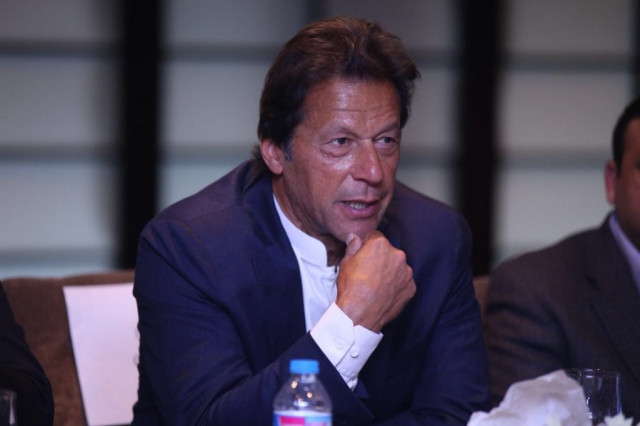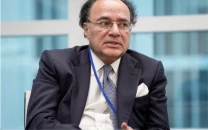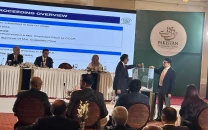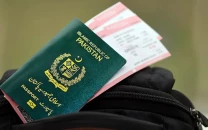Govt slashes non-salary budget by 10%
Move likely to help save Rs10 billion but will not address core fiscal problems

PM Imran Khan. PHOTO: PTI
The Pakistan Tehreek-e-Insaf (PTI) government has also decided to continue with a ban imposed on creation of new posts excepts where the posts are required to be created under development projects.
The Ministry of Finance has issued an office memorandum to give effect to the austerity measures for fiscal year 2018-19. Effectively, the cut in current non-salary expenditure will be on the budget allocations for the period of December 2018 to June 2019.
“In consideration of fiscal constraints and keeping in view the austerity drive of present government and to save public money, it has been decided to effect a saving of 10% in current expenditures,” said the Ministry of Finance office memorandum. The expenses will be cut only against the heads of operating expenses, physical assets and repair and maintenance.
'Austerity at PM House saved Rs147m'
The 10% cut will not be applicable on employees’ related expenses, their retirement benefits, subsidies, transfers, and civil works. The military budget has also not been slashed.
The PTI government is implementing tight fiscal and monetary policies that are likely to take a toll on this year’s national output. The State Bank of Pakistan has already downward revised the economic growth rate projections to 4% for this fiscal year as against 5.8% growth rate in the last fiscal year.
The total downward revised annual budget for running the civil government is Rs460 billion for fiscal year 2018-19. Nearly 70% expenditures have been exempted from the budget cut, which would reduce the net benefit to not more than Rs10 billion, according to an official of the Ministry of Finance.
The total non-salary expenditures are Rs180 billion and some components like transfers and civil works are exempted from the cut. The total budget for this fiscal year is Rs5.3 trillion. Out of this, an amount of Rs1.1 trillion has been allocated for defence and Rs1.842 trillion for servicing of the public debt.
During the first quarter of this fiscal year, the budget deficit widened to Rs541.7 billion in the wake of loosening controls over debt and defence spending.
The Rs541.7 billion budget deficit was equal to 1.4% of the Gross Domestic Product (GDP) despite bringing the development spending to a grinding halt and securing Rs246.6 billion provincial surpluses.
Expenditures on defence and interest on loans massively shot up. The total debt servicing in the first quarter stood at Rs507 billion –higher by Rs90 billion or 20.2%, showed the Finance Ministry statistics. The declared defense spending amounted to Rs219.4 billion –also up by Rs37 billion or 20.3%.
The debt and defence spending consumed Rs726 billion or 67.7% of the total expenditures by the federal government.
Compared with saving of nearly Rs10 billion, the federal government’s cost of debt servicing has increased by around Rs100 billion during the remainder period of this fiscal year due to 1.5% increase in interest rates and currency devaluation.
The government has also decided to issue supplementary budgets for meeting expenditures of defence and subsidies for export oriented sectors and sugar. This will increase the overall expenditures beyond Rs5.3 trillion, raising prospects of missing the revised annual budget deficit target of 5.1% of the GDP.
Govt to reconstitute boards of oil, gas firms
The Finance Ministry has intimated the federal secretaries to work out their savings and inform it by mid of this month. The government has also decided to continue with a ban on purchase of all types of new vehicles, excluding motorcycles, both for current as well as development expenditures.
However, vehicles for operational purposes could be bought for law enforcement agencies, subject to a no objection certificate by the finance ministry. The ministry has constituted a committee, to be headed by additional secretary expenditure Dr Arshad that will review the proposals seeking relaxation on ban on purchase of vehicles for operational purposes.
The government has also placed restrictions on foreign visits, directing that the delegations would comprise minimum possible people aimed at saving the foreign exchange reserves.



















COMMENTS
Comments are moderated and generally will be posted if they are on-topic and not abusive.
For more information, please see our Comments FAQ